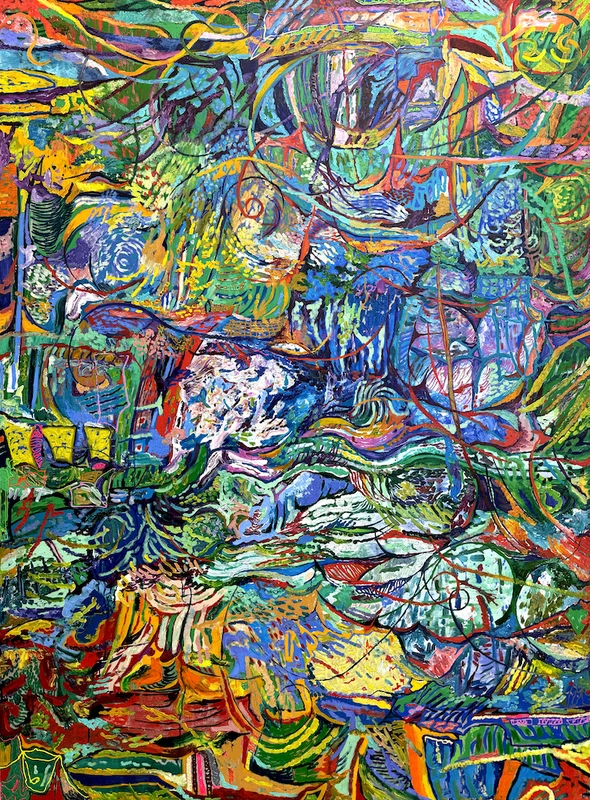Ksenia Dermenzhi: Invisible Paths
18 Jul-31 Aug 2024
PV 18 Jul 2024, 6-8pm


There exists an ongoing trope in art wherein the artist, so impassioned in their pursuit to become one with nature, describes this process as a literal dissolvement of the self into the earth. In Shakespeare’s The Tempest (1623), an elemental spirit sings of a shipwrecked king's human form blending into the ocean floor, detailing for audiences how his body parts have scattered into coral and pearls. And this is a tradition that extends both From German Romanticism to Rousseau's cryptic paintings that seem to pull the viewer into the mystic landscape; and more contemporarily too: Antony Gormley's carbuncle encrusted bronze male statues that reveal themselves with the changing tides, and Doig’s entire body of work seems to relate to desirous surroundings (and, possibly, his perpetual status as a physical and psychological outsider), or even Vija Celmins explorations where the artist’s hand seems to disappear into the process.
This tradition continues with Moldovan artist Ksenia Dermenzhi’s newest body of work, whose Invisible Paths brings her sophomore solo BEERS London after a sold-out exhibition in 2022 and a recent group show with James Cohan Gallery in New York that placed the young artist in the purview of noted American collectors, as well as a forthcoming inclusion in an exhibition focusing on contemporary landscape painters at London’s prestigious Saatchi Gallery.
But in Invisible Paths, Dermenzhi forgoes whatever remnants of realism or representation lingered from her previous works to similarly explore how her brushwork leads her (and us, the viewer) through the painterly process. These are landscape paintings – surely, but they’re also distinctly not landscapes, as Dermenzhi has ramped up the abstraction in her work, which is both exciting and evident. The powerful abundance of mark-making and colour suggests a lessening of the ‘self’ or ‘ego’ in full acceptance of nature’s bounty. She also alludes to embarking on a spiritualist journey in the vein of Thoreau, a notable modern advocate for creative thinking through connection with nature: specifically walking.
However the tradition of exploring “invisible paths” is not a contemporary notion. Both Aristotle and his predecessor Socrates extolled the merits of walking - and artists for centuries have been captivated by this process through art, literature, and philosophy. French Surrealist author René Daumal writes that “your dialogue with nature was just the outward image of an inner dialogue with yourself.”
In a letter to Émile Bertrand dated 1904, painter Henri Rousseau writes: “in order to make progress, there is only nature, and the eye is trained through contact with her.” So too does Dermenzhi’s work invite viewers to lose – or find – themselves. The majesty here is how Dermenzhi manages to make such frenetic, energetic mark-making harmonize; how her colours syncopate with a peaceful, calming rhythm. Us city goers may not have the ability to get back to nature as often as we’d like – in this case we invite you to take a leisurely stroll through Dermenzhi’s Invisible Paths.
***
*Another Place is a piece of modern sculpture by British artist Antony Gormley located at Crosby Beach in Merseyside, England consisting of 100 cast iron figures facing towards the sea. The figures are modeled on the artist's own naked body.